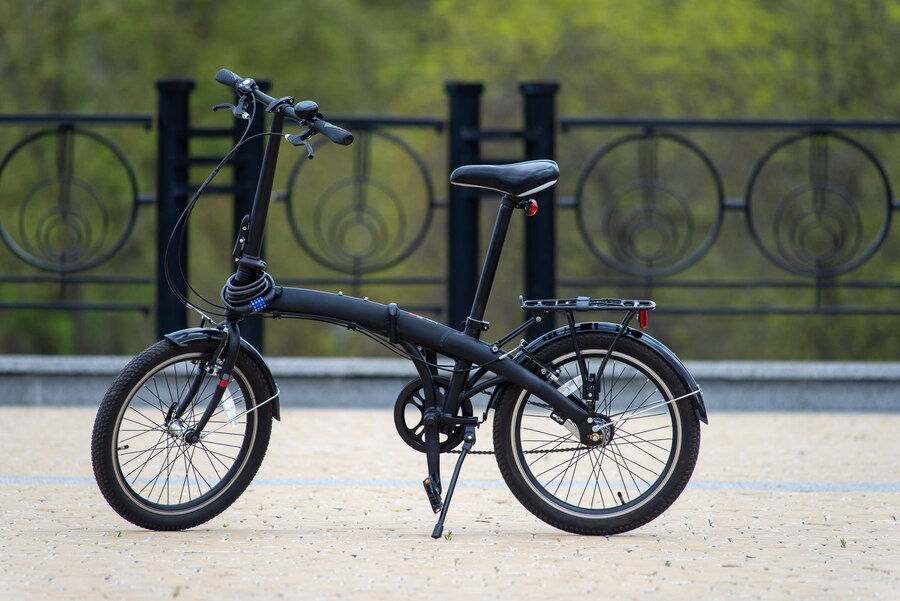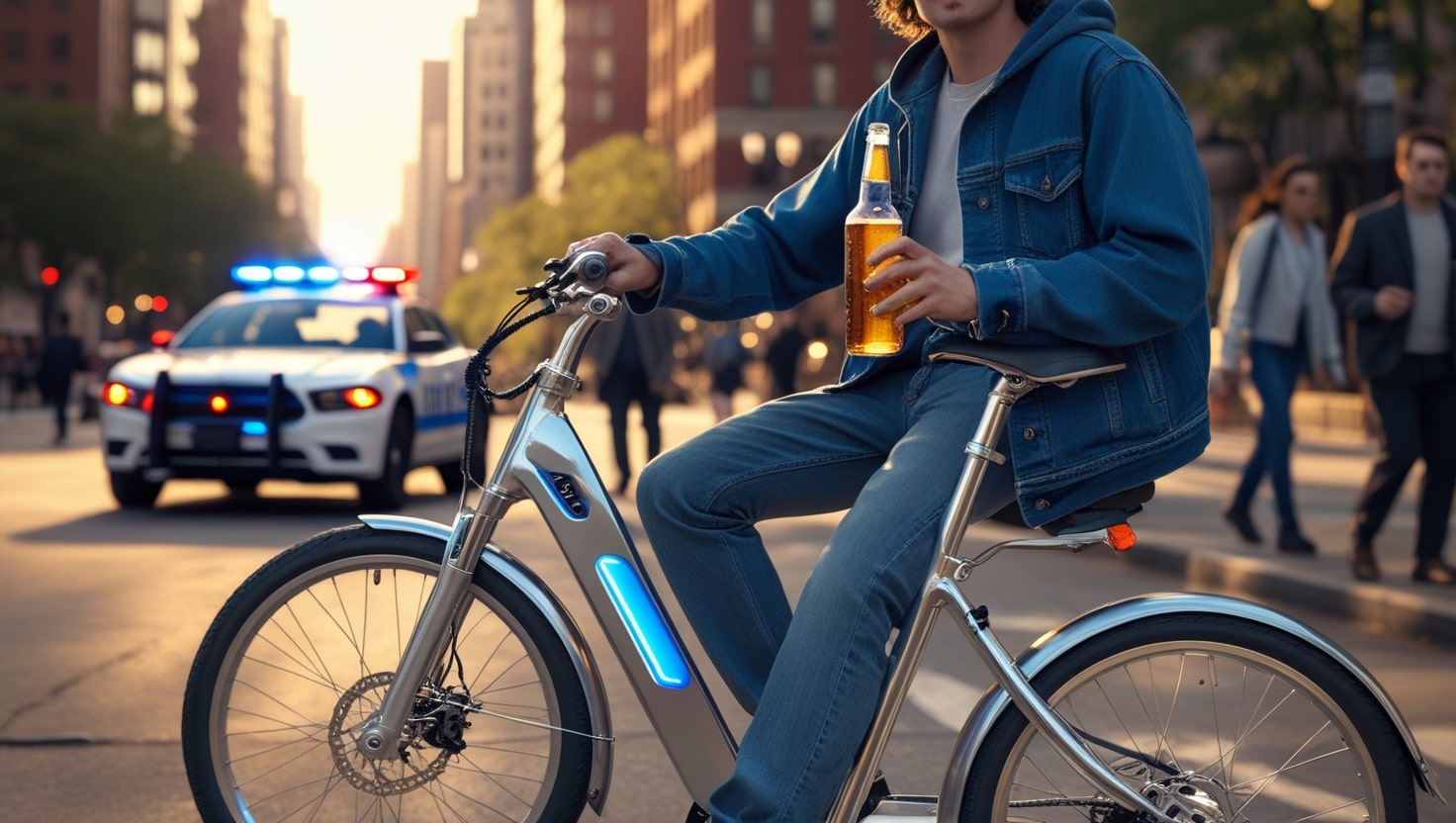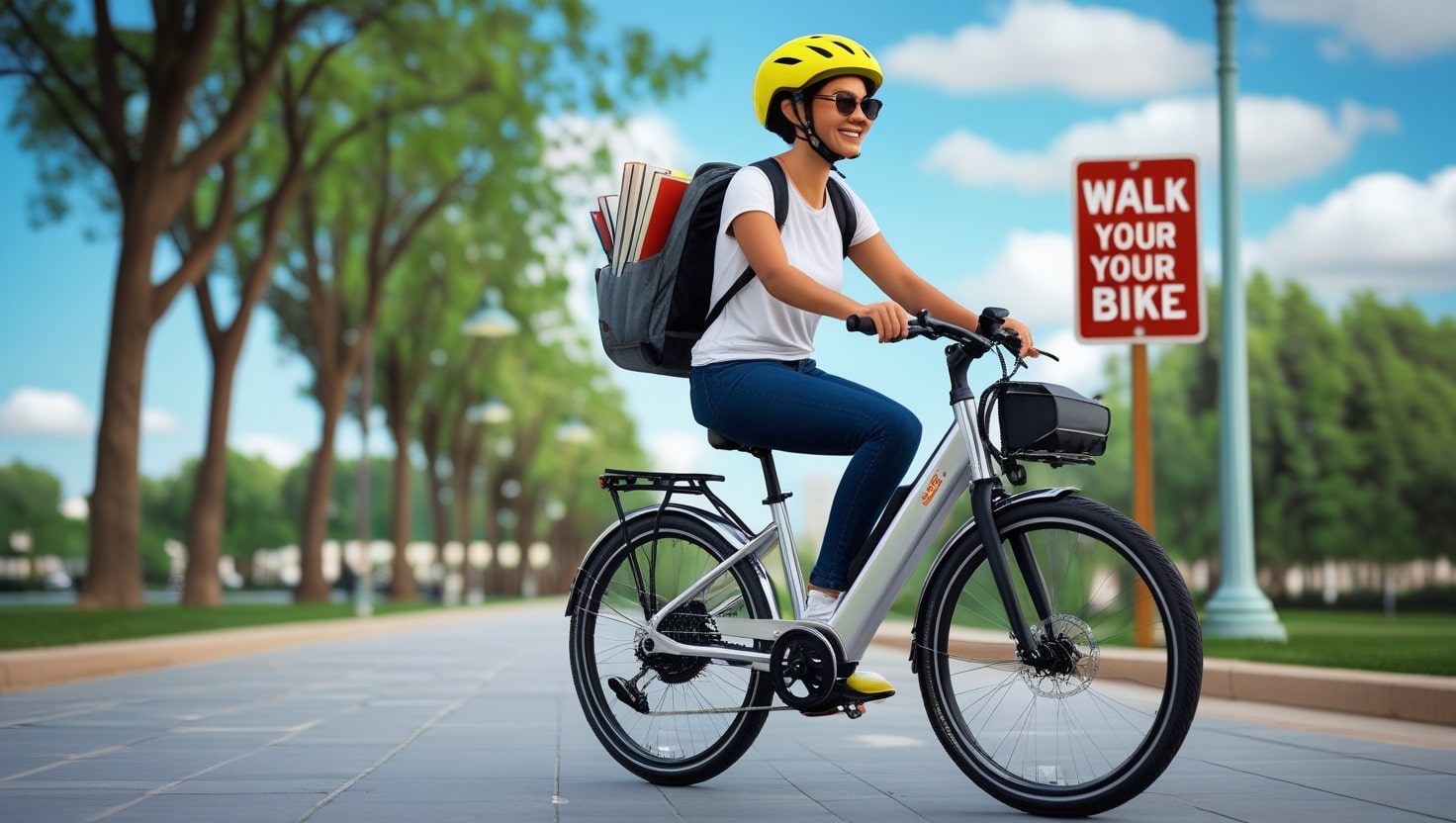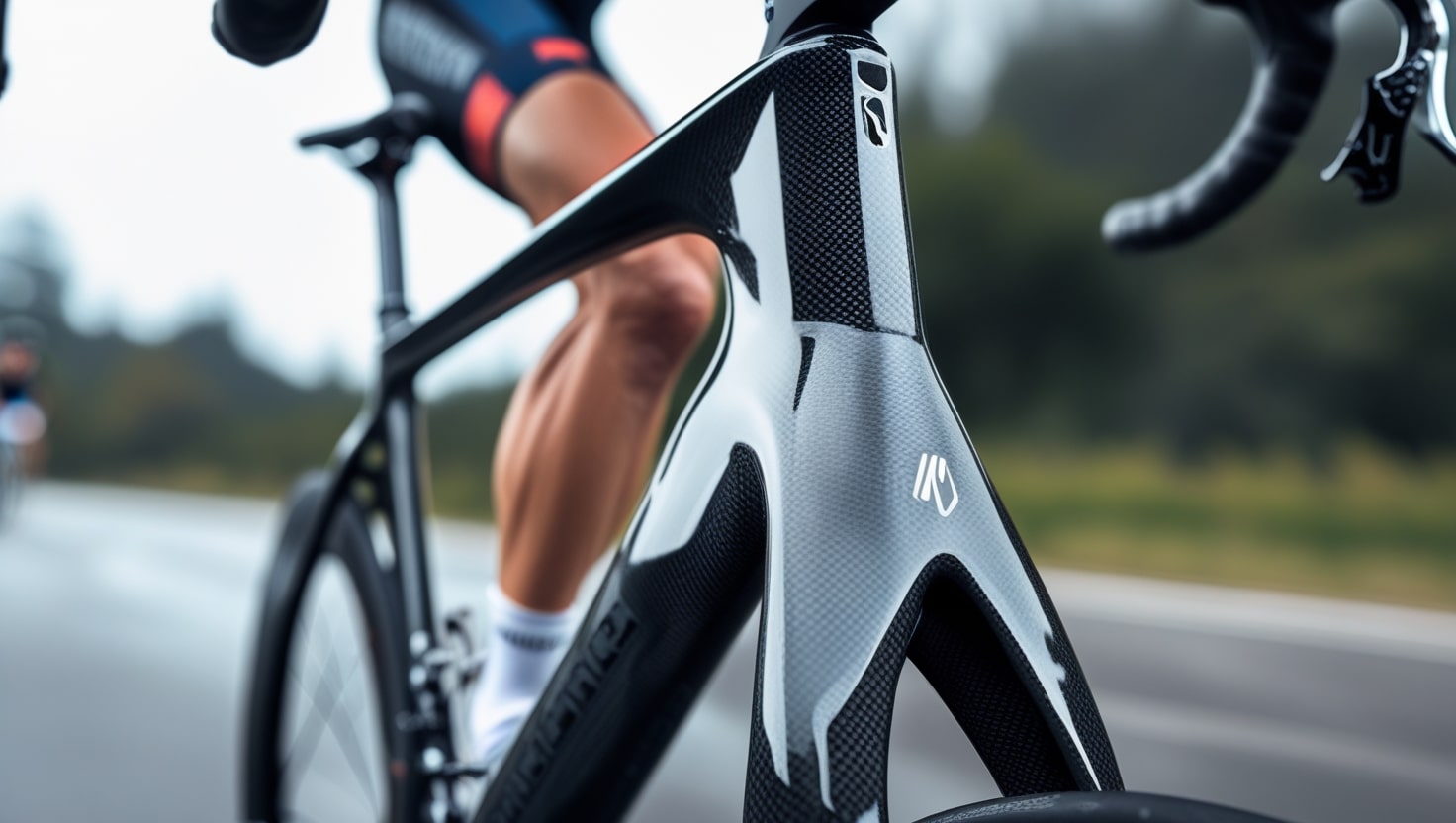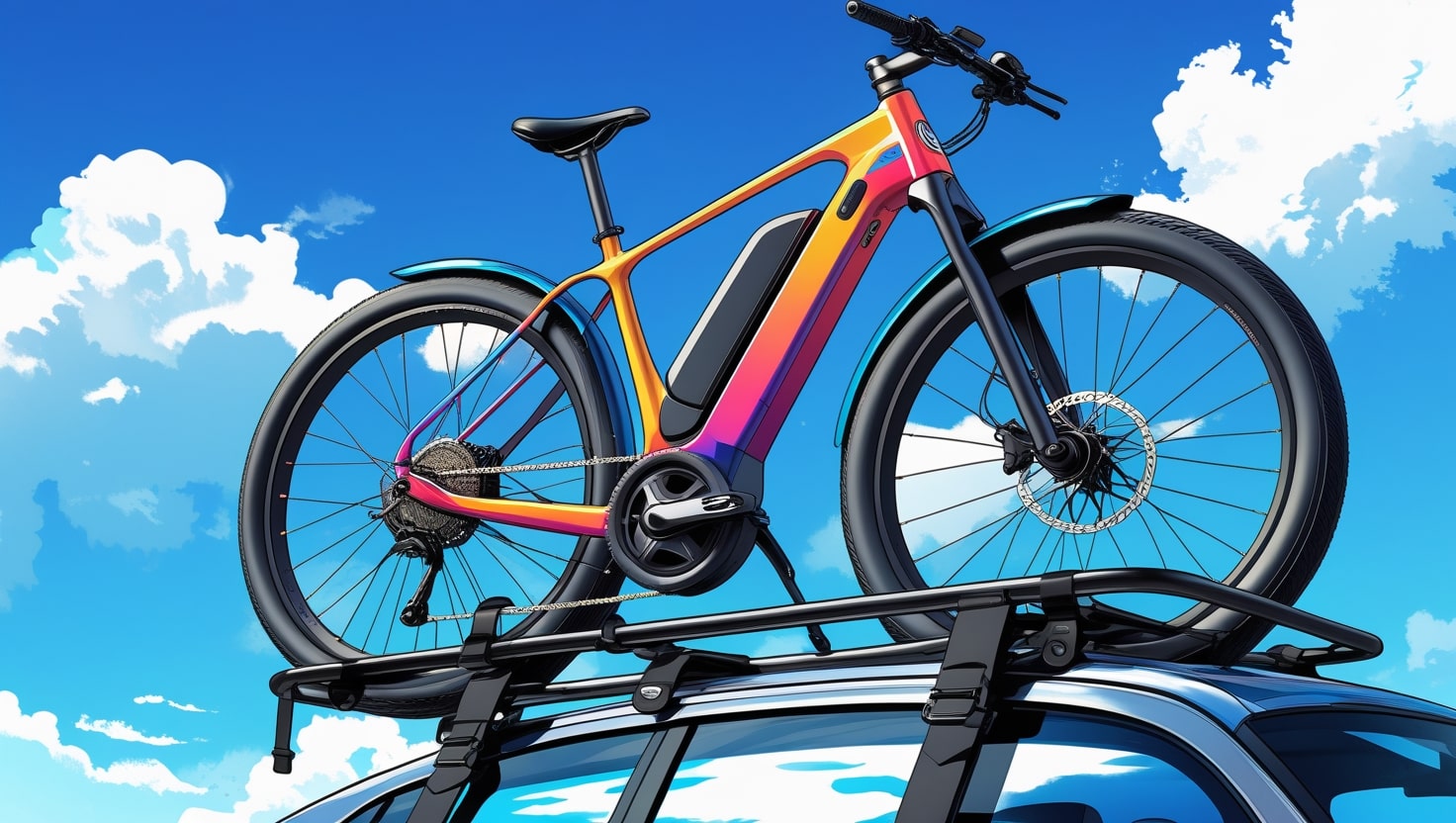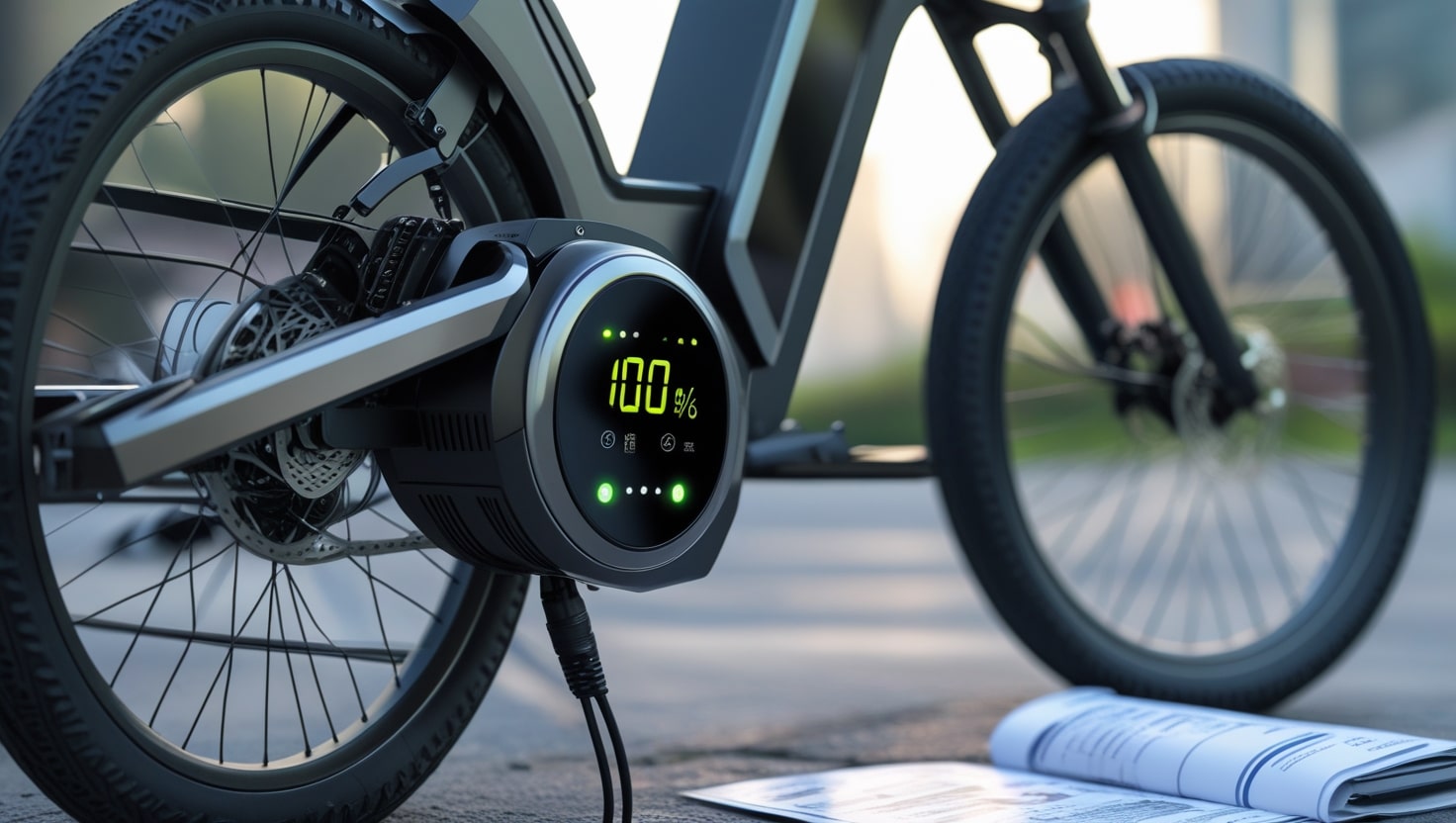Riding an electric bike in Delaware is an exciting way to explore the state, but knowing the laws is crucial for every two-wheeler enthusiast. The Delaware ebike laws ensure a smooth ride by setting clear rules for street-legal models. As someone who loves the electrifying world of e-bikes, I’ve got you covered with all the essential facts, skipping the fluff and diving straight into what matters in this growing revolution.
Do You Need a License to Drive an Electric Bike?
If you’re wondering whether you need registration, licensing, or insurance to ride an electric bike in Delaware, the answer is simple—Nope! Unlike motor vehicles, bicycles in this state are treated like their human-powered cousins, meaning you can enjoy the ride without extra paperwork. It’s like having your cake and eating it too—just hop on your bike and go!
How does Delaware define what an electric bike is?
In the state of Delaware, the law defines ebikes as a bicycle or tricycle that is equipped with fully operable pedals, a seat or saddle for the rider, and an electric motor of less than 750 watts. To make things clear, these bikes are categorized into 3 categories based on their motor power and how they operate.
- Class 1: Bikes with a motor that provides assistance only while pedaling and stops once the speed reaches 20 mph.
- Class 2: These bikes have a throttle that allows power without pedaling, but they are limited to 20 mph.
- Class 3: bikes with a motor that provides assistance while pedaling, but they can reach speeds of up to 28 mph.
Where Can You Ride?
Delaware has friendly electric bike laws, allowing you to take your e-bike on bike lanes, paths, and multi-use trails across the state. However, for singletrack and other trail rides, it’s always best to check local rules or contact land managers, as access may vary. Whether you’re riding through the city or exploring nature, being a responsible cyclist ensures a smooth and enjoyable experience for everyone.
Delaware Electric Bike Rebate
The Delaware Clean Vehicle Rebate Program offers incentives for residents and businesses looking to buy or lease new electric or hybrid vehicles. However, as of this writing, e-bikes remain ineligible for this rebate. If you’re searching for more info, the Department of Natural Resources and Environmental Control has details on its program website, helping you understand which options qualify.
Why E-Bikes?
- Accessibility: E-bikes make cycling easier for more people, removing barriers related to fitness, age, or mobility, allowing everyone to enjoy the world on two wheels.
- Convenience and Fun: Whether commuting, running errands, or cruising, e-bikes bring excitement to everyday travel, making each ride more enjoyable.
- Environmental Impact: With less gas and less traffic, riding an e-bike is a step toward a greener lifestyle and a happier Earth.
Responsible Riding
Remind you of being a responsible citizen while enjoying the freedom that e-bikes provide. Respect trail rules, wear helmets, and stay within posted speed limits. It all comes down to sharing the journey and having fun with other people.
Key Takeaways:
- No license is needed to ride e-bikes in Delaware.
- Three classes of e-bikes are defined based on speed and type of assistance.
- Class 3 e-bikes are not legal for those under 16 years of age, unless riding as a passenger.
- Operators of Class 3 electric bicycles must wear a helmet for safety.
- You can ride anywhere, but always check local rules and clubs for trail access.
- Delaware State Parks do not allow e-bikes on trails—if unsure, reach out for updates.
- Safety and respect ensure a responsible riding experience while keeping it fun.
DELAWARE eBIKE LAWS FOR TRAILS
- LOCAL: Always consult your local land management agency to understand the specific rules for e-bikes on trails.
- STATE: Delaware State Parks do not allow e-bikes on trails. It’s best to contact the department for the most up-to-date information. Organizations like ChiceBike are monitoring this policy and will update it when needed.
- Federal: On federal lands, eMTBs are classified as motorized vehicles; they are permitted to use motorized trails. However, Delaware has very limited federal land, with only a few locations allowing mountain biking.
Related: New Mexico Ebike Laws
eMTB GUIDELINES
- Access to e-mountain bike (eMTB) trails varies significantly across federal, state, county, and local areas.
- Natural surface trails that are designated open for both motorized and non-motorized uses typically allow eMTBs.
- Some trails managed for non-motorized activities may not allow eMTBs, so always check first.
- Never ride in unclear areas—stay legally on authorized paths to maintain the reputation of responsible trail users.
- If in doubt, ask your local land manager about specific rules, as trail access can change frequently.
GREAT eMTB RIDES IN DELAWARE
- Lap of the Bays: A scenic ride near Rehoboth Beach, covering 52.5 miles of beautiful coastal views and smooth trails.
- Amish Country Gravel Route: This 62-mile adventure in Dover takes you through quiet backroads, farmland, and peaceful countryside, perfect for long rides.
Additional notes:
- Every bicycle in use during nighttime must have a lamp on the front that emits a white light visible from a distance of 500 feet.
- A red reflector of an approved type by the Department must be installed on the rear, visible for 600 feet.
- Reflective material with sufficient size and reflectivity should be on both sides to enhance visibility.
- Either the bicycle or its rider must have lights or reflectors for safety.
- A brake or brakes must allow the driver to stop within 25 feet when riding at a speed of 10 mph on dry, level, clean pavement.
Final Thoughts
For many people, electric bikes are a lifestyle option that combines sustainability, fitness, and enjoyment. They are more than just a fad. Are you prepared to power up your vehicle and take a two-wheeled tour of the First State? Let’s make every trip enjoyable!
Related: Ohio Ebike Laws
FAQs
Do you need a license, insurance or registration in Delaware?
There are no licensing or registration requirements for e-bikes in the state of Delaware.
What are the restrictions on Motor power or throttle in Delaware?
The maximum power that an e-bike’s motor can produce is 750 watts.
Are there any age restrictions to riding an electric bike in Delaware?
To ride a class 3 e-bike, you must be 16 years of age or above.
What are the laws around helmets in Delaware?
Everybody under the age of 16 is required to wear a helmet. A helmet is required for anyone riding a class 3 ebike.
What is the difference between an electric scooter, moped and triped?
A motorized scooter or skateboard is a vehicle with two wheels on the ground, equipped with handlebars, a hand-controlled throttle, and a brake. It is designed to be stood or sat on by the operator, as defined by Delaware law.
While mopeds and tripeds have a similar design and size, mopeds have two wheels, whereas tripeds come with three wheels for added stability.

